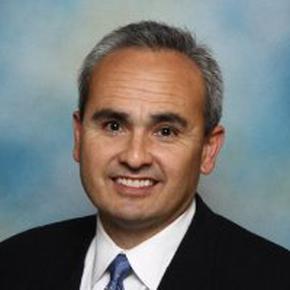Meet the Expert

David Standridge
Consultant, TrustedPeer, Inc.
- Executive with 20-plus years of top-tier management consulting experience, specializing in mergers and acquisitions (M&A) and supply chain management (SCM).
- Most recently, led quality and customer experience to the highest levels in Hewlett-Packard history, increasing Net Promoter Score by 10 percent.
- Former partner at Booz & Co., where he grew high tech industry revenues by 100 percent, and at Accenture, where he led the largest M&A deals in the high tech sector.
- Led and executed the carve-out of Linksys from Cisco, the post-merger integration of HP and Compaq, and more than a dozen successful acquisitions in the technology sector.
Meeting Packages from $600

Your Meeting Package Includes:
- All 7 Best Practices
- Pre-Meeting Discovery Process
- One-on-One Call with Expert
- Meeting Summary Report
- Post-Meeting Engagement

Managing Successful Post-Merger Integrations and Carve-Outs
Consultant, TrustedPeer, Inc.
Defined Terms
- "Two in the box"
- Large PMIs usually require on-site consultants to help manage integration so that company managers can continue to run the business. A "two-in-the-box" arrangement pairs key integration leaders with a consultant with experience in PMIs. The company manager may only dedicate 25-50 percent of his or her time to the PMI, while the consultant would be there full time doing the legwork and heavy lifting.
- Best-of-breed providers
- Best-of-breed IT solution providers specialize in applications that meet individual needs at very high quality, as compared to mega-vendors who offer all-in-one software suites.
- Carve-out
- Carve-out is a colloquial term for a spin-off or divestiture.
- Consumerization of enterprise
- A phrase which is becoming more prevalent to describe increasing demands and expectations of enterprise customers because of their experience in the business-to-consumer environment.
- Economies of scale
The cost advantage that arises with increased output of a product. Economies of scale arise because of the inverse relationship between the quantity produced and per-unit fixed costs; i.e. the greater the quantity of a good produced, the lower the per-unit fixed cost because these costs are shared over a larger number of goods. Economies of scale may also reduce variable costs per unit because of operational efficiencies and synergies. Economies of scale can be classified into two main types: Internal – arising from within the company; and External – arising from extraneous factors such as industry size.
Source: http://www.investopedia.com/terms/e/economiesofscale.asp#ixzz3jCeIzHK1- Post-merger integration (PMI)
- Post-merger integration is the phase of work after the close of the deal which integrates all the functions of the acquired company with those of the acquiring company.
Managing Successful Post-Merger Integrations and Carve-Outs:
Defined Terms
Expert Topic
